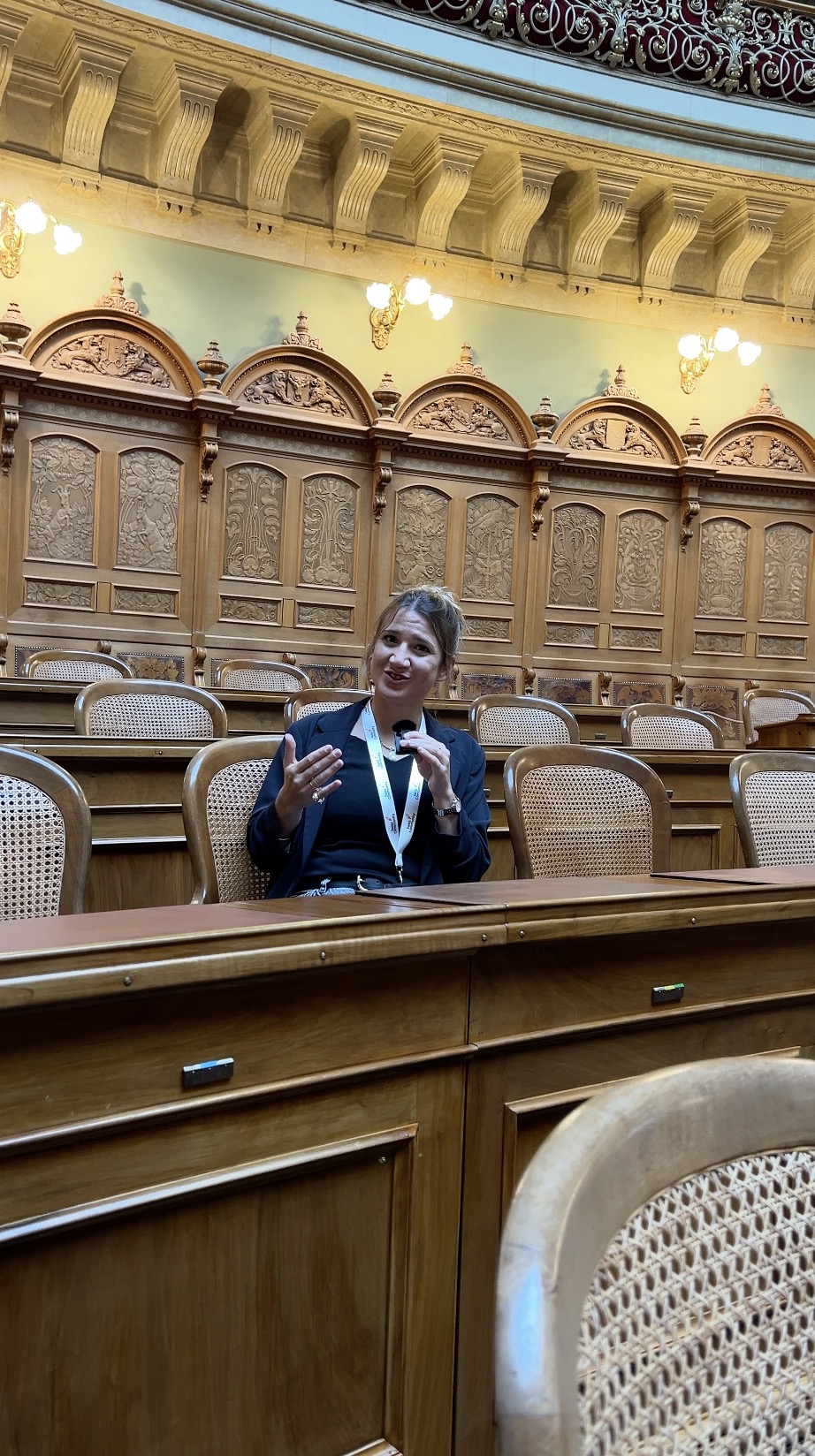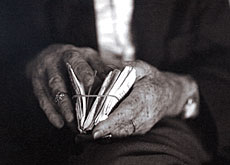
Delaware: tax haven or just “advantageous”?

This small, bucolic nook is home to cows that live on farms and some peculiar tax laws, but the neighbours have become somewhat prickly over its profitable status.
Thousands of companies here do nothing other than allow their owners to avoid paying taxes in other jurisdictions. Welcome to Delaware, one of the United States’ onshore tax refuges.
As US President Barack Obama pursues offshore jurisdictions like the Cayman Islands, Luxembourg and Switzerland – all accused of helping people and companies avoid US taxes – Delaware’s special status among states has come under scrutiny.
“I was kind of surprised,” said Nicholas Mirkay, a professor at the Widener University School of Law in Wilmington, recalling his reaction to an interview request mentioning the words “tax haven” and “Delaware” in the same sentence.
“I never thought of Delaware as a tax haven in the way that people think of the Caymans or other places where you’re able to shelter lots of assets from income tax,” he said.
Mirkay is right. There are no palm trees.
A tale of two cities
Although Wilmington’s 73,000 inhabitants make it Delaware’s largest city, it remains small compared with others in the region such as Baltimore, Philadelphia and Washington DC. Yet over the decades Wilmington has taken on some of the big city glitz and many big city problems.
On the city’s east side, glass buildings refract the sunlight and people in finely tailored suits mull about opulent lobbies on the way to or from a power lunch. Wilmington is home to the Hotel du Pont, a spectacular edifice built in America’s Gilded Age.
On the other side of town, boom boxes boom and people loiter up and down North Market Street, passing Kennedy Fried Chicken. The establishment sits on a street corner and looks like its more famous Kentucky rival, but trapped in the 1970s and a few rungs lower on the social mobility ladder.
Wilmington was the first city in the nation to put its entire town centre under camera surveillance and has one of the highest per capita rates of HIV among US cities.
But the good news for the people on North Market Street who are actually planning on buying something is that there is no sales tax. This is because there are so many companies headquartered here – some 60 per cent of the nation’s 500 largest, in fact.
Advantage Delaware
“Sure, there are certain credits and advantages that are in the system,” Mirkay told swissinfo.ch at his offices, a 15-minute drive from the city centre.
A big benefit is that companies don’t pay tax on income earned outside the state, although Mirkay notes that they do pay federal income tax, which is several times higher than Delaware’s 8.7 per cent flat tax.
Around 20 states have passed laws aiming to prohibit companies from taking advantage of Delaware laws to avoid paying billions in state taxes. Switzerland and the Cayman Islands are also crying foul over the state’s decades-old loopholes, and Jean-Claude Juncker, the prime minister of Luxembourg, said the state should be treated like a tax haven.
Fortune 500 companies are only half the story in Wilmington. There is one building here that is home to more than 200,000 corporations.
US authorities play down the fact that the country imposes no tax on the dividends, interest and capital gains earnings of foreigners. Wilmington is probably the only place in the world where a person can set up a brass plate investment company in the morning and purchase extensions “made with real hair” in the afternoon.
According to John Christensen of the Tax Justice Network, that makes the US guilty of facilitating the same type of criminal activity it wants to stamp out offshore. Christensen says the international community – and the 30-member Organisation for Economic Co-operation and Development (OECD) – was unfairly selective when it drafted a list of tax evaders.
He calls Delaware a jurisdiction as evasive as any. “There are some extraordinary omissions on that list – there’s no question about it,” he said.
Legal system
But as in Switzerland, Delaware’s champions insist the benefits go beyond taxes. “If you ask most people, certainly if you ask most of my corporate colleagues, the reason that Delaware attracts so many of the Fortune 500 companies is because of the legal system in place here,” Mirkay said.
Wilmington’s Chancery Court, a place for resolving equities disputes, dates to 1792, and its judges have heard some of the country’s most complicated and sensitive cases. The competence of the state’s small bar, its Supreme Court and its laws make it a “good place to have a business and operate from a management viewpoint”, he said.
Richard Heffron, vice president of government affairs at the Delaware State Chamber of Commerce, also eschews comparisons to offshore centres.
Heffron told swissinfo.ch he was able to discreetly court and introduce executives to the state’s political officials because of the state’s size.
Delaware also has the flexibility to quickly negotiate incorporation agreements with firms, he added, noting that when Bank of America completed the purchase of MBNA, a credit card company, in 2006, within six months it was able to negotiate a new charter to keep MBNA’s offices in the city.
The Internal Revenue Service is now investigating whether Delaware-based credit card companies helped US online companies move assets overseas, although MBNA has not been fingered.
Heffron says Delaware is no tax haven but is “tax advantageous”. He is not the first and he probably won’t be the last.
Justin Häne in Wilmington, Delaware, swissinfo.ch
This is the third in a four-part reportage examining tax haven news and views from the United States. Swiss officials were negotiating a new double taxation agreement with the US this week.
Wilmington, population around 73,000, is the largest city in Delaware, whose capital is Dover. Behind Rhode Island, Delaware is the smallest state in the US in terms of land area.
Thanks in part to regulations instituted by the state’s governor in 1981, Wilmington has become the centre of the US credit card industry.
Institutions headquartered there include Chase Card Services, Barclays Bank of Delaware, the US unit of British bank HSBC and the US internet banking unit of Dutch giant ING.
The state is also home to numerous insurance companies and current Vice President Joe Biden, formerly one of the state’s senators.
Delaware is also the seat of the DuPont chemical company and does not have a state sales tax for regular people.
Franchise taxes on companies headquartered in the state supply about 20 per cent of its state revenue.
Switzerland has been under fire from US lawmakers for a number of years over banking secrecy. Critics say it allows people to store illicit assets and avoid paying taxes.
On May 14, 2008, the problem got worse when a UBS banker and a Liechtenstein businessman were charged with helping a US billionaire evade taxes.
In July 2008, a Miami court said the Internal Revenue Service could issue a summons demanding the names of around 52,000 UBS accountholders without proof that they were all tax evaders.
Swiss banks are not allowed to reveal the names of people who only fail to disclose assets or income to the US authorities. The Swiss government said the order would violate the country’s sovereignty as well as an existing Swiss-US income tax treaty.
Citing updates to a treaty dating to 1951, Switzerland says it cooperates in cases of “tax fraud and the like”.
The Internal Revenue Service says the treaty should be “viewed in context”. It’s something the Swiss say is disappointing.
UBS has in the mean time quit private banking in the US and will hand over a few hundred client names.
In March, the Swiss decided to ease banking secrecy. They are renegotiating double taxation agreements with a number of countries, including the US, but have already said they will drop the distinction between evasion and fraud.
Swiss officials met on June 16 with US officials for a second time.

In compliance with the JTI standards
More: SWI swissinfo.ch certified by the Journalism Trust Initiative









































You can find an overview of ongoing debates with our journalists here . Please join us!
If you want to start a conversation about a topic raised in this article or want to report factual errors, email us at english@swissinfo.ch.